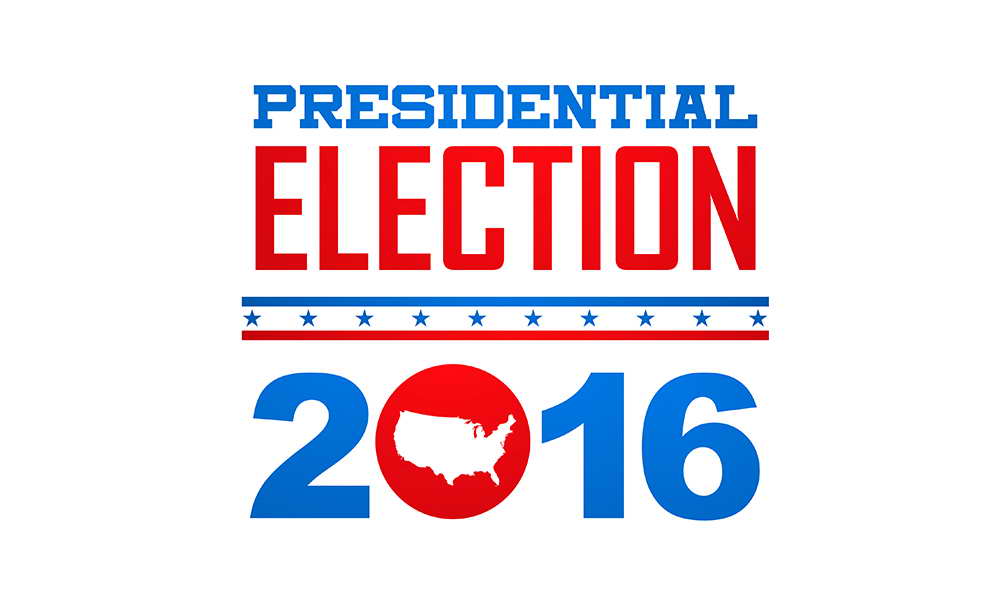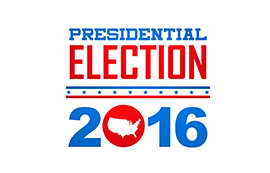April 7, 2016
4/7: Delegate Front-Runners, Clinton and Trump, Benefit from Each Other
McClatchy/Marist National Poll
Registered voters nationally are motivated more by dislike for the other candidate than positive feelings for their candidate of choice in a general election contest between the Democratic and Republican delegate leaders, former Secretary of State Hillary Clinton and businessman Donald Trump. In a hypothetical tossup between Clinton and Trump, Clinton, 50%, leads Trump, 41%, by 9 points among the national electorate. While Trump’s support is identical to what he received in November’s McClatchy-Marist Poll, 41%, Clinton’s support has declined from 56%.
However, 53% of Clinton’s supporters say their vote is one of opposition to Trump and not in support of Clinton. Among Trump’s supporters, a similar pattern exists. More than six in ten, 61%, report they choose Trump because they are against Clinton.
“What an odd place Clinton and Trump voters find themselves in this unprecedented election cycle,” says Dr. Lee M. Miringoff, Director of The Marist College Institute for Public Opinion. “While front-runners typically bank on favorable views from their followers, Clinton and Trump candidacies are fueled by voters’ dislike of the alternative.”
When Clinton is matched against her other potential general election opponents, the contests become more competitive. Clinton and Texas Senator Ted Cruz are tied, 47% to 47%, among registered voters nationally. This contest has become tighter since the fall when Clinton, 53%, was ahead of Cruz, 43%, by 10 points. Against Ohio Governor John Kasich, Clinton trails Kasich, 42% to 51%. Support for Kasich has grown. In the July McClatchy-Marist Poll, Clinton, 49%, had a double-digit lead over Kasich, 39%, among the national electorate.
In each of these three general election contests, a partisan divide exists. However, when Trump and Clinton are matched, more than one in ten Republicans support Clinton, and independents divide. When Kasich goes up against Clinton, more than one in ten Democrats back Kasich. Among independent voters, Kasich outpaces Clinton by 22 points, and Cruz leads Clinton by 11 points.
A gender gap is also present. Against Trump and Cruz, Clinton has a double-digit lead among women. She is ahead of Trump by 24 points and Cruz by 12. However, Clinton only has a 5 point edge over Kasich among this key voting group.
Vermont Senator Bernie Sanders runs better against Trump, Cruz, or Kasich than does Clinton. Sanders’ greatest advantage is over Trump, 57% to 37%, among registered voters nationally. In November, Sanders received 53% of the vote to 41% for Trump.
Here, a majority of Trump’s supporters, 52%, say they are voting for Trump while 44% say their vote is in opposition to Sanders. Sanders’ supporters divide. 49% report their vote is an affirmation of Sanders while 48% say it is a ballot against Trump.
Looking at Sanders’ other potential Republican candidates, Sanders also bests Cruz, 53% to 41% and Kasich, 52% to 41%, among the national electorate, little changed from last November.
By party, most Democrats support Sanders while most Republicans support Trump, Cruz, or Kasich. A notable 18% of Republicans, though, back Sanders in a hypothetical matchup against Trump. Among independents, Sanders leads his potential GOP opponents. He is ahead of Trump by 24 points among independents. Against Cruz and Kasich, Sanders leads by 9 points and 8 points, respectively.
Does it matter if the Democratic candidate or the Republican candidate wins the general election? Registered voters nationally divide. 45% think their family will be economically better off if the Republican candidate is victorious. 41% have this view about a victory by the Democratic nominee. When it comes to national security, 44% of the national electorate say the country will be safer if the Democrat wins. The same proportion, 44%, reports the GOP will make the nation safer. On both questions, a partisan divide exists with pluralities of independent voters saying the Republicans will improve the economy and national security.
Complete April 7, 2016 McClatchy-Marist Poll of the United States


